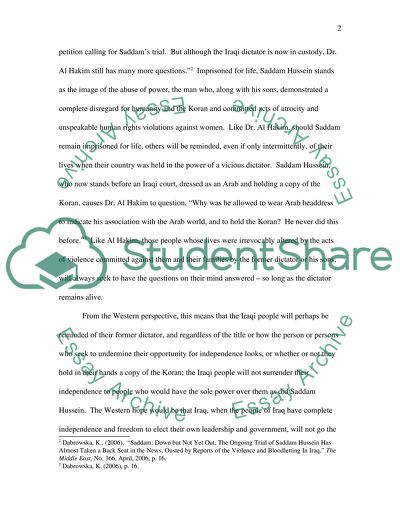Cite this document
(“The Argument For Not Executing Saddam Hussein Essay”, n.d.)
The Argument For Not Executing Saddam Hussein Essay. Retrieved from https://studentshare.org/history/1531449-the-argument-for-not-executing-saddam-hussein
The Argument For Not Executing Saddam Hussein Essay. Retrieved from https://studentshare.org/history/1531449-the-argument-for-not-executing-saddam-hussein
(The Argument For Not Executing Saddam Hussein Essay)
The Argument For Not Executing Saddam Hussein Essay. https://studentshare.org/history/1531449-the-argument-for-not-executing-saddam-hussein.
The Argument For Not Executing Saddam Hussein Essay. https://studentshare.org/history/1531449-the-argument-for-not-executing-saddam-hussein.
“The Argument For Not Executing Saddam Hussein Essay”, n.d. https://studentshare.org/history/1531449-the-argument-for-not-executing-saddam-hussein.


